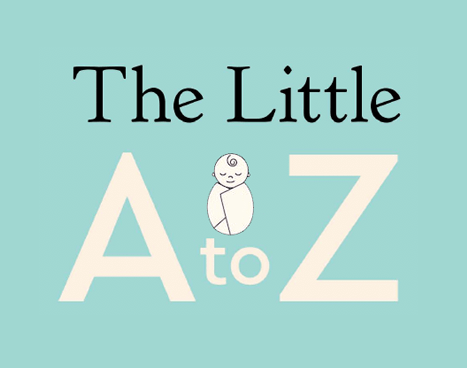Stop the Clock
In pursuit of time well-spent

“Money will buy you a clock but not time.”
~Sierra Leone proverb
Time and clocks.
I see time as the space in which conversations with friends happen, dates with our partners take place or where we steal a moment of stillness. Clocks are the schedules that bookend our days, all the appointments we must make with our children, or the meetings we set for work. Time should leave us satiated, full and bubbling. Clocks keep the day ticking but often also make us cranky, anxious and stiff. Worse yet, when we have a stressed relationship to the clock, it spills over to our children:
“We are late.”
“Hurry up.”
“Move faster.”
For some months now, I've definitely felt more clock than time. Moving from one marker to the next on the daily schedule. But not necessarily feeling satiated.
In a bid to reboot my relationship to both time and clock, I reached out to my surrogate grandparents from my days in Kenya: Harold and Annetta Miller. Of American parentage, both spent most of their lives living in East Africa, having only recently started shuttling between the US and Kenya as they reach their mid-80s.
I wrote to ask about their own impressions of clocks and time, the differences if any between American and African views of time, and how they feel now that they are straddling the two worlds.
Below some musings they shared over emails.
The “Sasa”: Living in the Present
“People are always talking about killing time but time is actually killing people.”
~Tanzanian proverb
Harold shared with me a piece he wrote some years back on African cosmology. In his piece, entitled, “Africa: Past, Present, and Future Religious, Temporal, Political Crosscurrents,” he discusses leading thinking on the concept of time by African philosophers. Perhaps most influential has been the work of Professor Mbiti from the University of Nairobi who has put forward the idea that Africans by and large live in the present, some in the past but definitely not the future. This is very much in contrast with most European and North American cultures who, by and large, live very much in the future (keeping time, thinking about where you need to be next, and by consequence not always enjoying 'the moment.')
The present, as described by Mbiti, is the “sasa,” a space sub-divided into 'potential time' and 'actual time.' 'Potential time' represents solar and lunar time which sets the pace for all of life—humans, animals, nature. Whereas 'actual time' refers to time we as humans have on our hands. It is 'willed time,' meaning the moments we have agency over. By and large, according to Mbiti, Africans see time as a seamless whole, bounding willed human action with the function of time. Importantly however is Mbiti's assertion that time is dominated by “the sasa,” the present.
How does this concept of time translate to the day-to-day? Harold recalled in his correspondence to me, “We were always intrigued in Africa by the unapologetic late arrivals at scheduled meetings.” I too recalled from my decade living in Africa how meeting times were an approximation, a sort of goalpost to be oriented towards but certainly not limiting. A conversation with a friend might occur right before. A neighbor might come by for last-minute help. There was never, “Sorry I cannot stop to talk or I will be late for such-and-such.” Instead, you talked, you helped and arrived eventually to the meeting. It was in these moments that social connections and service took place, time as opposed to clocks guiding actions.
Did Harold and Annetta think that we see time differently from Africans? Oh yes. Harold wrote,
“Upon our return to the US we were astonished all over again by US adherence to 'time'. I attend a weekly coffee klatsch on Wednesdays. All nine participants arrive spot on time (7:30 am) or within a minute of that time. Uncanny.”
Annetta chimed in with her own correspondence to me,
“Regarding time…I remember a Kenyan friend telling me after her first visit to the US, 'You Americans are controlled by time! Here in Africa, we control time!' “
We control time. What a concept.
In Pursuit of Time Well-Spent
With WFH, there is increasing discussion about work-life balance. Many professionals feel the boundaries of a traditional work day have eroded and by consequence are feeling more drained, less connected to people or just simply more overworked.
In principle working flexibly (outside of traditional hours) is not the problem. Many of us in fact wish for more of it, and we know the evidence points to this as a leading factor for retaining female talent in particular. The issue is when we don't keep track of those 'out of traditional' hours we work and therefore don't seek to reclaim them back in other parts of our day. Or if we find that some work obligations compete with child-related responsibilities (morning or evening routines). For instance, I've had to really monitor the frequency of morning and evening calls to ensure these don't take away from (on a consistent basis) family time with son and husband that I can't substitute for during the day.
Beyond work however our lives may just be really programmed. Between our kids after school or weekend activities and our own social or familial obligations. Sometimes in fact we feel like we are running after time—those meaningful moments where we can just 'be' without any obligation.
In the end there are plenty of tips to reclaim time and free ourselves of the clock mentality. Many of which we know and have discussed frequently in this newsletter:
-Establishing consistent 'dates' with friends and your partner to just catch up
-Build-in extra time to get places, especially with your child
-Don't over schedule activities for either you or your kids (ie: sports, afterschool dates, weekend socials)
-Take moments of rest on the weekend, no matter how 'bored' everyone thinks they might get
-Train your mind to live more in the present. I love
Tara Brach's meditations in particular
-At work, set boundaries by literally blocking off time slots in your calendar that are meeting-free
-Be inquisitive about whether a certain meeting really needs to happen
-Take lunch for yourself and perhaps get out for a walk
Beyond however these tips, the few reflections shared from Africa may prompt us to reconsider the value gleaned from living in the present: connecting to people, taking in the beauty of our surroundings. I always marvel how we are trying to get to the car and little Clyde wants to stop and the spider spinning its web, or how my husband always makes time to have a pleasant exchange with a neighbor down the street. Just slowing down can do wonders for our well-being.
So challenge yourself, if you are feeling like the clock is ruling your life, to re-evaluate your relationship to time. No better than as summer winds down and we all prepare to return to another year full of school and work obligations.
A big thank you to Annetta Miller for sharing the African proverbs. You can find her gorgeous books of over 100,000 assembled African proverbs for sale with various book sellers. Check out her
website.









